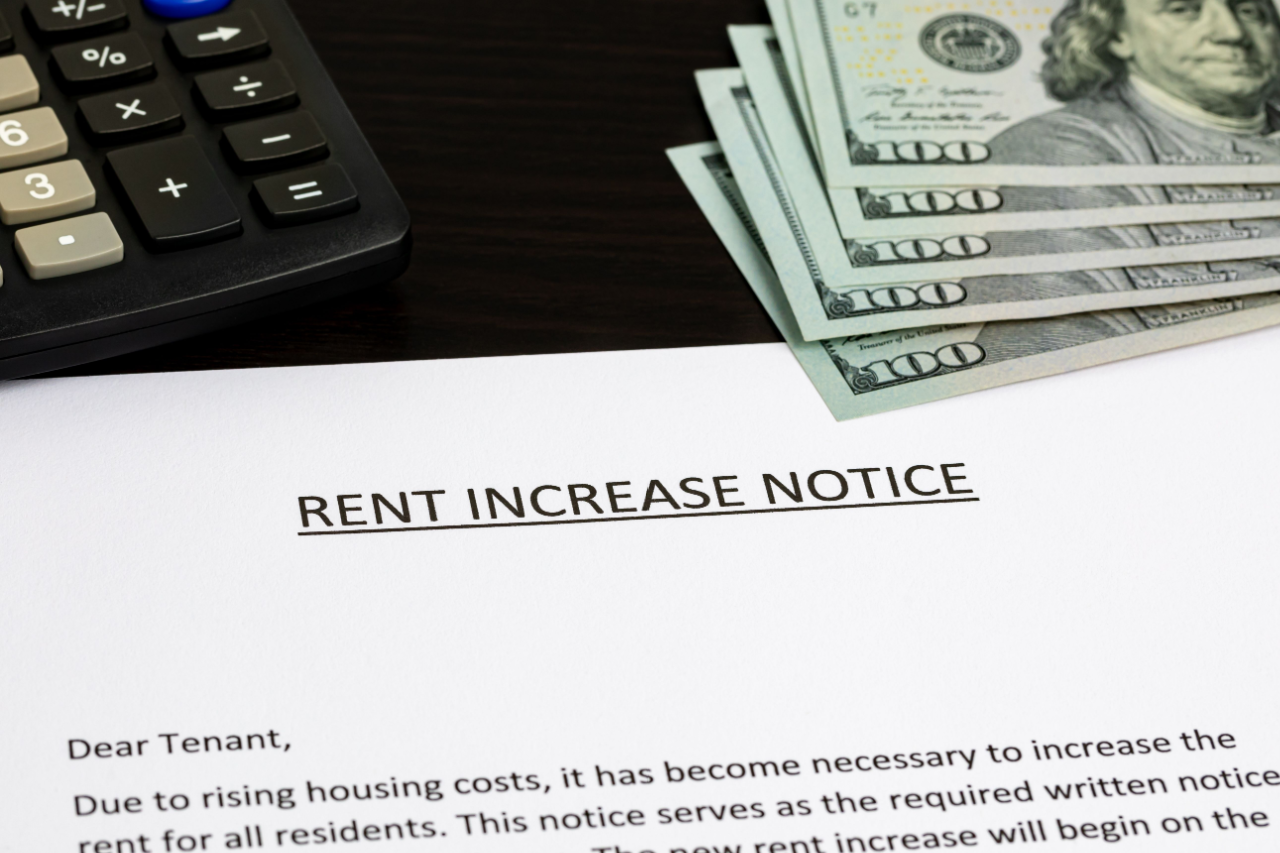Why Small, Annual Increases Are Best for You and Your Tenants

When Is the Last Time You Raised the Rent?
As a landlord or property owner, when was the last time you raised the rent on your tenants? If it’s been a while—or maybe never—you’re not alone. Many property owners hesitate to increase rent, either because it feels awkward to bring up or because they worry it might push good tenants out the door.
We get it—keeping the peace with tenants is essential. But here’s the thing: avoiding rent increases altogether can quietly erode your investment’s potential. So, let’s dive into this topic, weigh the pros and cons, and explore why small, steady increases might just be the sweet spot for you and your tenants.
Why Landlords Avoid Raising Rent
It’s human nature to avoid uncomfortable conversations, and asking for more rent can feel like one of those moments. Maybe you’ve built a great relationship with your tenants and don’t want to rock the boat. Or perhaps you’re concerned that a rent hike could send them packing, leaving you with a vacancy to fill in a competitive rental market.
These are valid concerns—but they’re only part of the story. Let’s break down the pros and cons of raising rent versus keeping it static so you can make an informed decision.
The Pros and Cons of Raising Rent
Pros of Raising Rent:
- Keeps Up with Rising Costs: Property ownership isn’t cheap—maintenance, taxes, insurance, and utilities all creep up over time. Raising rent helps you cover these expenses without dipping into your profits.
- Boosts Cash Flow: A modest increase can improve your monthly cash flow, giving you more financial flexibility to reinvest in your property or save for future upgrades.
- Increases Property Value: For multi-unit properties, higher rental income directly impacts your property’s market value. Buyers look at cash flow when evaluating a sale, and consistent rent increases signal a well-managed investment.
- Matches Market Rates: Keeping your rent aligned with local trends ensures you’re not leaving money on the table.
Cons of Raising Rent:
- Risk of Tenant Turnover: A big jump in rent might prompt tenants to look elsewhere, leading to vacancies, lost income, and the cost of finding new renters.
- Potential Pushback: Tenants might resist or negotiate, creating tension in your landlord-tenant relationship.
- Administrative Effort: Raising rent involves notifying tenants, updating leases, and ensuring compliance with local rent control laws, which can feel like a hassle.
The Pros and Cons of Not Raising Rent
Pros of Not Raising Rent:
- Tenant Retention: Keeping rent steady can foster loyalty, especially with reliable, long-term tenants who pay on time and care for your property.
- Less Stress: Avoiding the rent-increase conversation sidesteps any awkwardness or conflict, keeping things simple.
- Stable Income: You maintain a predictable revenue stream without the uncertainty of tenant turnover.
Cons of Not Raising Rent:
- Eroding Profits: As your costs rise, static rent squeezes your margins, potentially turning a profitable property into a financial burden.
- Cash Flow Challenges: Without adjustments, you might struggle to fund repairs or upgrades, leaving your property less competitive.
- Lower Sale Value: For multi-unit properties, stagnant rents can make your investment less attractive to buyers who prioritize income potential. This could mean a tougher sale—or a lower price—down the road.
- Falling Behind Market: If rents climb and yours don’t, you’re undervaluing your property and missing out on revenue.
Small Increases Are the Smart Move
Our experience has taught us this: smaller rent increases each year are the best approach for landlords and tenants alike. Why? Tenants are more likely to accept a modest bump—say, 3-5%—because it feels fair and predictable, especially when tied to inflation or market trends. They understand that costs go up for everyone. Meanwhile, you, as the property owner, stay ahead of rising expenses and protect your investment’s long-term value.
Compare this to never raising rent or waiting years before implementing a sudden, significant increase. The former can lead to cash flow issues that sneak up on you, while the latter often triggers turnover and stress. We believe gradual increases create the ideal balance—financial stability for you and comfort for your tenants.
How to Raise Rent the Right Way
Here’s how to do it smoothly:
-
Check Local Laws: In California, for example, rent increase rules vary by property type and location. For example, the Tenant Protection Act caps annual increases at 5% plus inflation (up to 10%) for certain properties.
-
Time It Wisely: Tie increases to lease renewals or give ample notice—California requires 30-90 days depending on the amount.
-
Communicate Clearly: Explain the “why” behind the increase (e.g., rising maintenance costs) to build understanding.
-
Start Small: A $50-$100 bump is less likely to shock tenants than a $300 leap.
Don’t Let Fear Hold Back Your Investment
So, when is the last time you raised the rent? If it’s been years—or never—it might be time to rethink your strategy. Avoiding increases might keep tenants happy in the short term, but it can quietly undermine your financial goals.
Source: Authority Property Management













 Accessibility
Accessibility